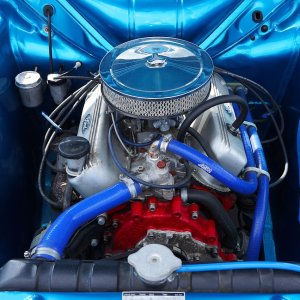
China’s Top Three Airlines to Buy 300 Airbus Planes
 By Antonio Gozain | Senior Journalist and Industry Analyst -
Fri, 07/01/2022 - 17:00
By Antonio Gozain | Senior Journalist and Industry Analyst -
Fri, 07/01/2022 - 17:00
China’s top three state airlines will buy almost 300 Airbus jets, the largest order by Chinese carriers since the start of the pandemic as Boeing remains partially frozen out of China, reported Reuters.
In “apparently coordinated announcements,” Air China and China Southern Airlines said that they would each buy 96 A320neo-family planes, worth US$12.2 billion at list prices. In addition, China Eastern Airlines stated that it will buy 100 jets of the same type, worth US$12.8 billion. While airlines often receive substantial discounts to list prices, China Eastern said these were “larger than usual.”
China is a large market for planemakers, representing a quarter of Airbus and Boeing deliveries in a normal year. However, since the pandemic, China lagged behind from the global jet market, dealing both with COVID-19 and trade tensions with the US. "As a top US exporter with a 50-year relationship with China’s aviation industry, it is disappointing that geopolitical differences continue to constrain US aircraft exports," said Boeing in an emailed statement. The US planemaker added that it continued to urge a productive dialogue between the governments of the US and China.
Beijing broadly balances jet purchases between the EU and the US over time, “with such large deals typically held in reserve for state visits,” industry sources told Reuters. However, this deal signaled a considerable step toward France’s Airbus, they added. "Boeing aircraft sales to China historically support tens of thousands of American jobs, and we are hopeful orders and deliveries will resume promptly," said Boeing.
Although planemakers do not assemble aircraft in Mexico, the most prominent players among the aerospace industry do have a presence and suppliers in the country, including Boeing and Airbus. Boeing is the main partner of the country’s legacy airline Aeroméxico, which has over 135 aircraft, including Boeing 737 NG, B737 MAX and 787-Dreamliner airplanes. On the other hand, Airbus dominates the Mexican airline market, providing 100 percent of low-cost carriers Viva Aerobus and Volaris’ aircraft.
Comac: China’s Bet
The Commercial Aircraft Corporation of China (Comac), a state-owned aerospace manufacturer established in 2008, has faced several challenges that are slowing down its expansion in the commercial aircraft market. Headquartered in Shanghai, the company was born as China’s bet to avoid dependency on Western plane makers Airbus and Boeing. Comac’s first jet is the ARJ21, a 78-90 seat regional jet, which was introduced in 2016 by Chengdu Airlines. By the end of 2021, Comac had delivered 66 ARJ21 aircraft.
Comac’s next bet was the C919, which began production in 2011 and made its first maiden flight in 2017. The C919 is able to carry 156 to 168 passengers in a normal operating configuration for up to 5,555km. While this plane aimed to compete directly with the Boeing 737 Max and Airbus 320neo, it fell short in terms of range, capacity and technology, according to Business Insider.
Comac has faced several challenges in the last years, from technical difficulties to supply chain and political issues. The plane maker was impacted by restrictions imposed by the US in 2020, which blacklisted shipments of supplies such as flight controls and jet engines. While the company represents China’s bet to become independent from the West, around 60 percent of the C919 parts are supplied by US companies. Comac was then forced to rely on special licenses from General Electric and Honeywell to get the necessary parts for the jet, according to the Center for Strategic and International Studies.
In January 2021, the US named Comac a company “owned or controlled” by the People’s Liberation Army and prohibited any US company or individual from investing in it. In addition, the company has also failed to secure the C919’s local certification from China’s aviation regulator.
















